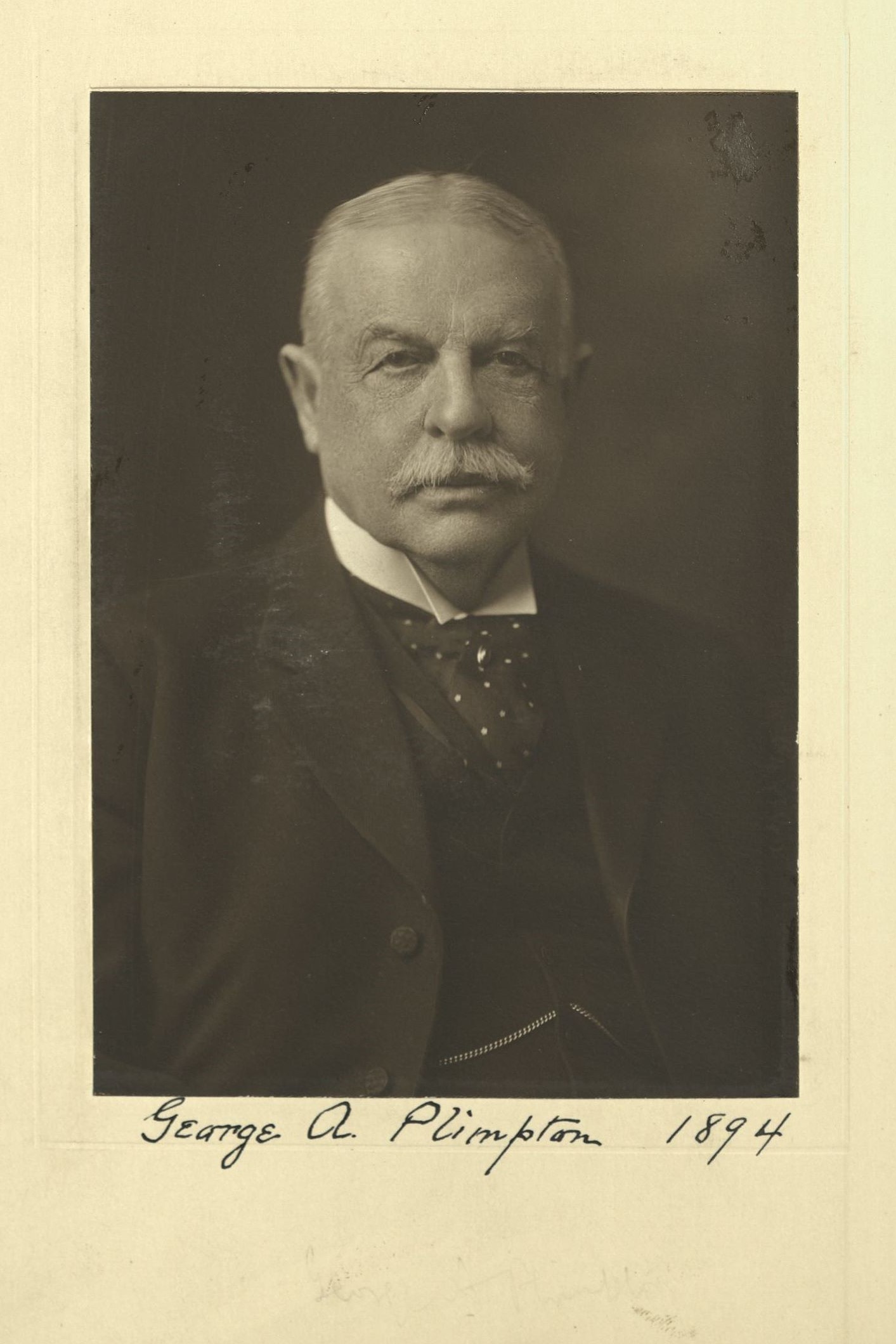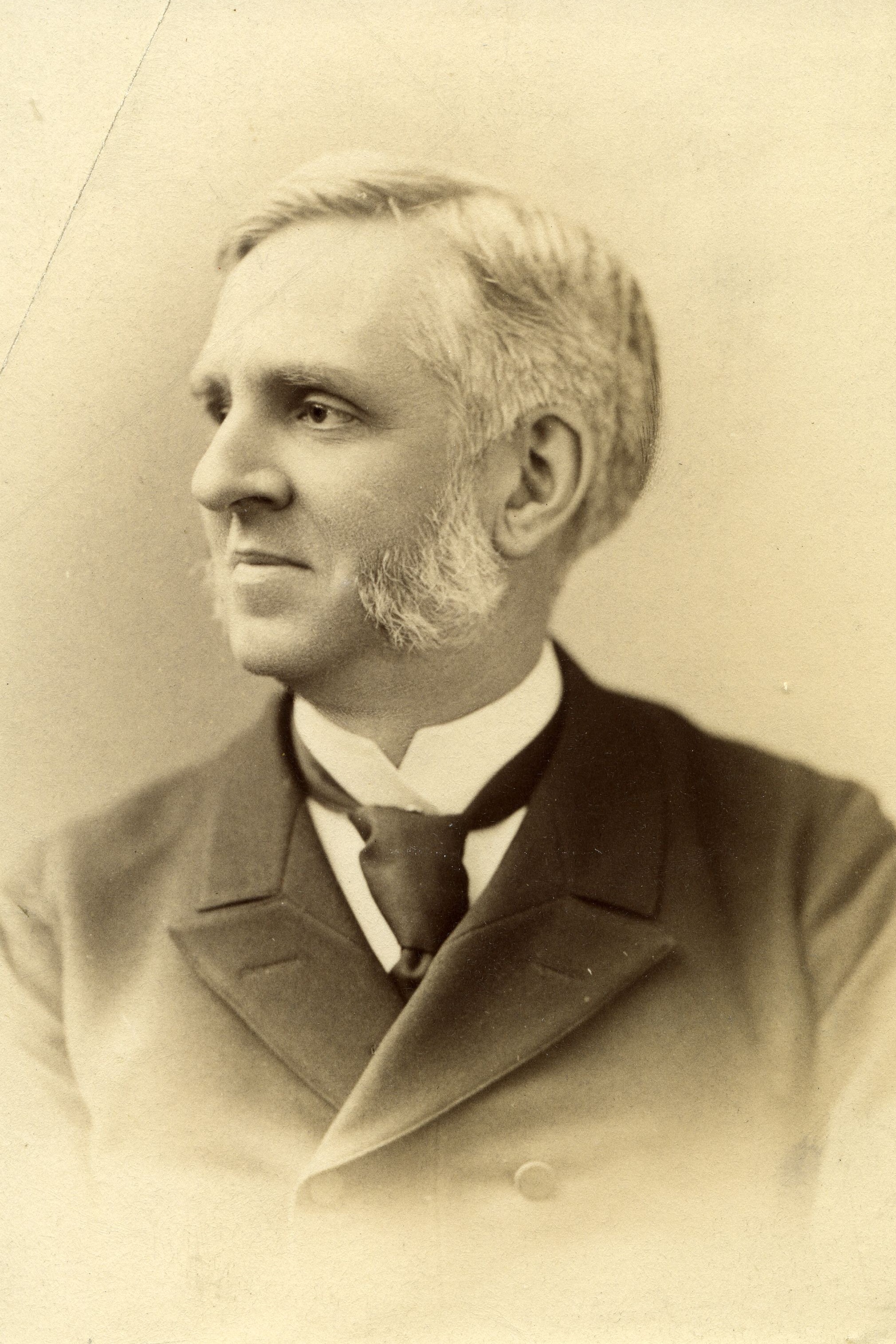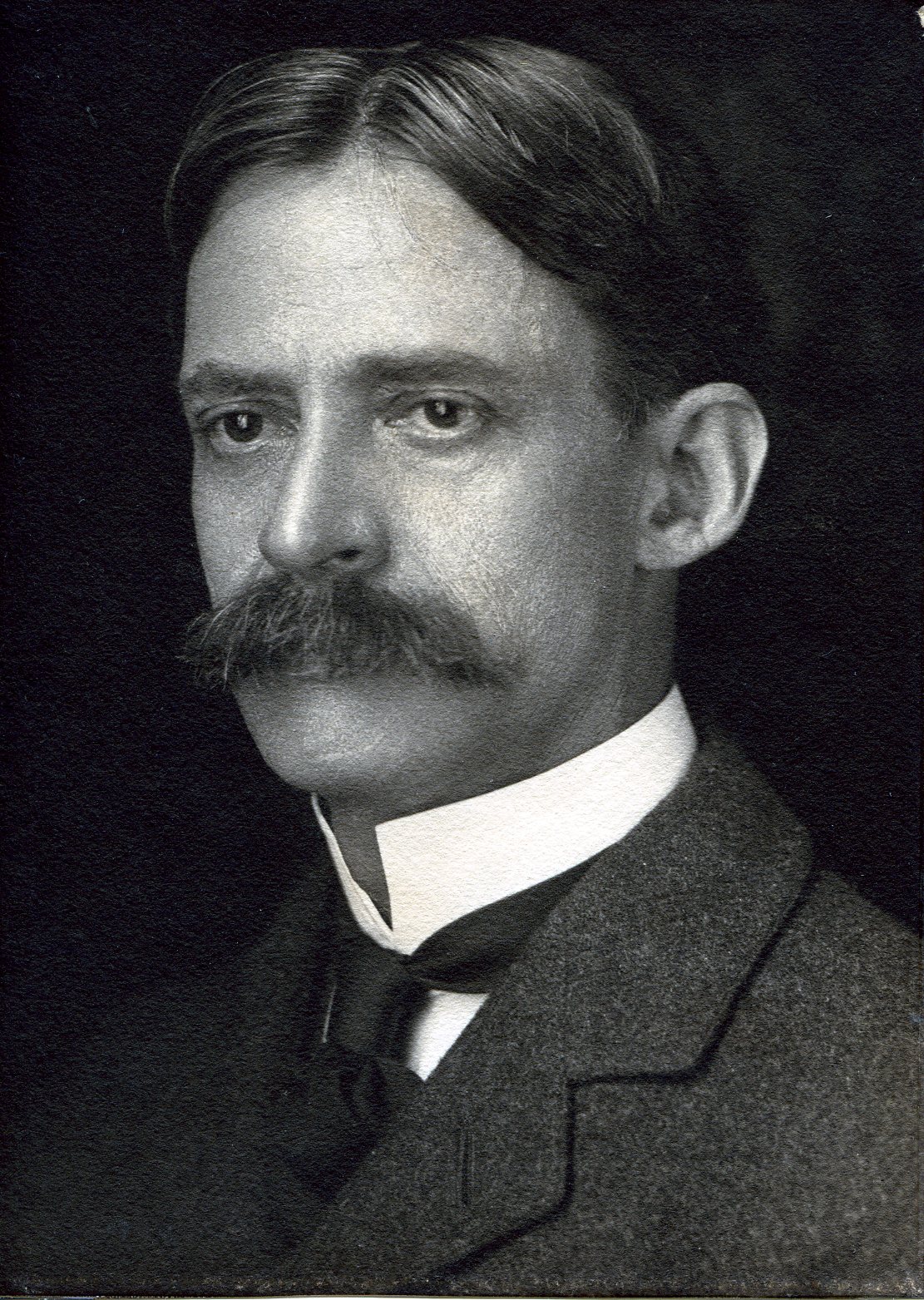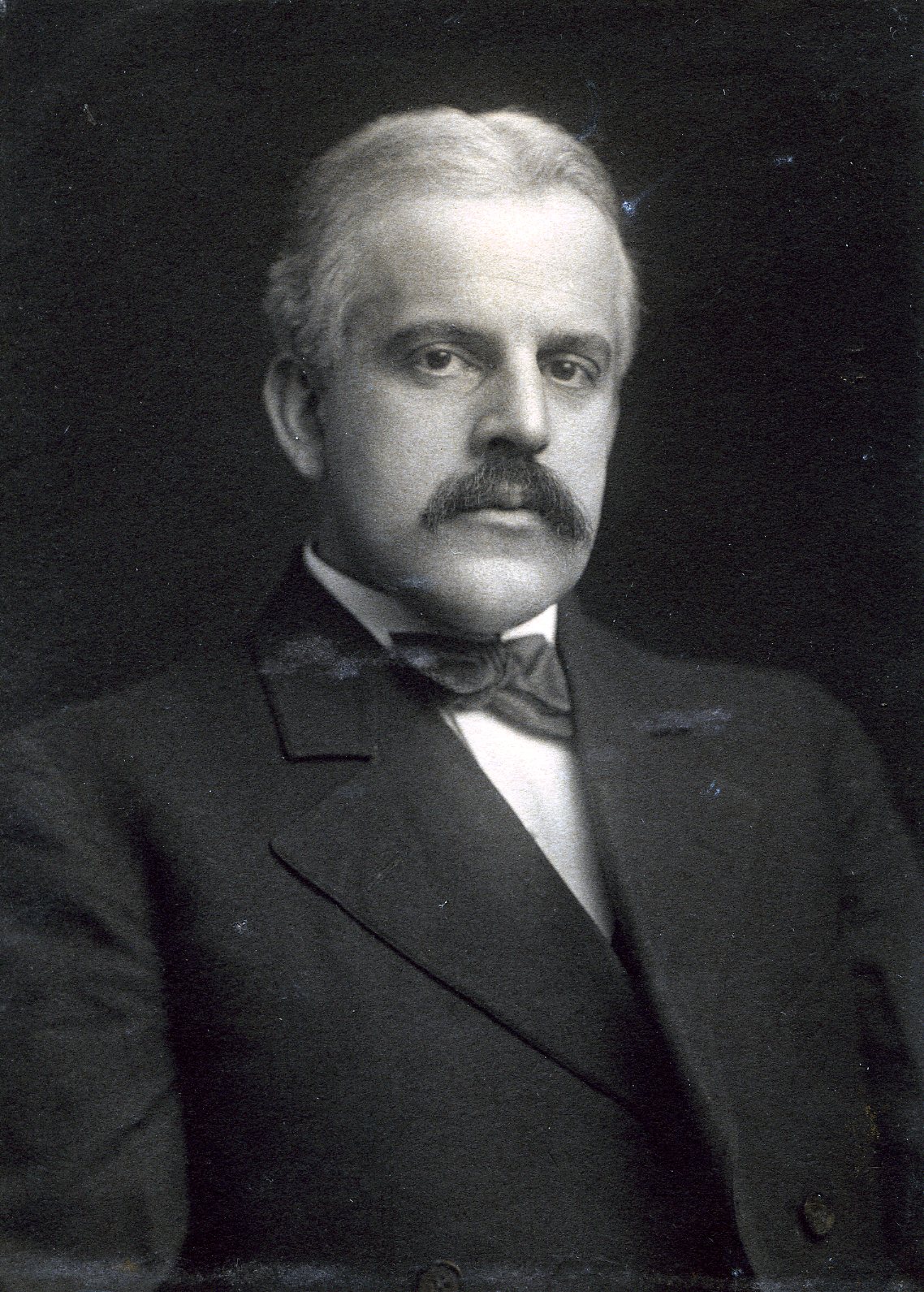Member Directory,
1847 - 1922
George A. Plimpton
Publisher
Centurion, 1894–1936
Arthur Brooks and Silas B. Brownell
Walpole, Massachusetts
Walpole, Massachusetts
Age thirty-eight
Walpole, Massachusetts

Archivist’s Notes
Father of Francis T. P. Plimpton
Century Memorial
Centurions who met George Arthur Plimpton in the Club-house, with his always serious manner and his very casual remarks on current news, had often little idea of the achievement which lay behind his quiet personality. Plimpton had two objectives: to carry through to success the endowment of institutions which were nearest his heart—Barnard College and Amherst in particular—and to acquire from old collections evidences of what the masters of English in other days had to depend on for their education.
For ensuring endowments, Plimpton was a master-hand. One of the wealthiest American citizens once remarked to him, as Plimpton himself recalled: “You have been one of the heaviest liabilities on my balance-sheet.” Plimpton carried Amherst College through the “Meiklejohn crisis,” which in a way he had himself invoked; for it was he who, as chairman of the Amherst trustees, had originally invited the young instructor from Brown to take charge at Amherst. But when, as administrative officer, Meiklejohn became impossible, when he cabled from Europe, on his leave of absence, that the trustees would have to forward him a thousand dollars or he could not come home, Plimpton put up the money, induced the occupant of Amherst’s presidency to resign, and faced the music in the outcry of the sensational press that “educational independence” was being suppressed.
Whether Plimpton’s extraordinary collection of “horn-books” and other educational apparatus of boys in Shakespeare’s time was procured because of his own particular interest in Shakespeare, or because no other collector had interested himself in that particular direction, at all events the collector’s treasures of the Sixteenth Century stand quite by themselves. Plimpton published a booklet of his own on the “Education of Shakespeare,” based upon originals in his own collection, which were probably Shakespeare’s boyhood text-books in the Stratford school. The horn-book with alphabet and syllables, the primer, the catechism, the Geneva Bible, the Latin dialogues, the rules of logic, rhetoric and orthography, the instructions as to writing (including preparation of a quill pen) are all on Plimpton’s shelves. Many of them are referred to in Shakespeare’s plays, and the collection is extraordinarily interesting. But any one who imagines that discovery of this program of educational instruction, provided for the author of Twelfth Night, Hamlet, Macbeth and Tempest, will throw the least actual light on the little Stratford schoolboy’s subsequent achievement, is bound to be left, in his investigation of the “Shakespeare mystery,” exactly where he was before.
Alexander Dana Noyes
1937 Century Association Yearbook
Related Members
Member Directory Home-
 Arthur BrooksClergymanCenturion, 1881–1895
Arthur BrooksClergymanCenturion, 1881–1895 -
 Silas B. BrownellLawyerCenturion, 1890–1918
Silas B. BrownellLawyerCenturion, 1890–1918 -
 Thomas W. LamontBankerCenturion, 1910–1948
Thomas W. LamontBankerCenturion, 1910–1948 -
 Gonzalez LodgeProfessor of LatinCenturion, 1905–1942
Gonzalez LodgeProfessor of LatinCenturion, 1905–1942 -
 Henry Allen OverstreetEducatorCenturion, 1914–1916
Henry Allen OverstreetEducatorCenturion, 1914–1916 -
 Arthur Jeffrey ParsonsChief Division of Prints, Library of CongressCenturion, 1904–1915
Arthur Jeffrey ParsonsChief Division of Prints, Library of CongressCenturion, 1904–1915 -
 Herbert M. RichardsProfessor of BotanyCenturion, 1910–1928
Herbert M. RichardsProfessor of BotanyCenturion, 1910–1928 -
 Justin Harvey SmithProfessor of Modern HistoryCenturion, 1902–1930
Justin Harvey SmithProfessor of Modern HistoryCenturion, 1902–1930



